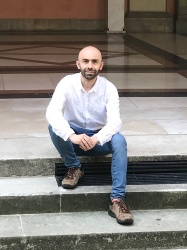Vlad Popovici
- Research fellow, Masaryk Institute and Archives, Czech Academy of Sciences
- Research Interests: history of Transylvania; history of elites and mid-upper classes; digital history and historical databases
- Role in the project: Co-Investigator, Supervision of the Transylvanian Research Team, Data extraction for the MPs between 1867-1928, Data structuring and analyses, Dissemination activities and scientific publishing
A short family history
When I was a child visiting my father’s home village, Vătava [Râpa de sus / Felsőrépa], Mureș county), locals often addressed me by making reference to the whole family lineage: “You are Vlad [son] of Pantilimon, [son] of Ioan, [son] of Victor the priest’s son”. As clear as the lineage looks, the story behind it is a bit more complicated.
Victor Popovici was a prosperous villager who, at the beginning of the 20th century, broke the family tradition by choosing not to become a priest. This came as no surprise, as his father, Grigore Popovici, had been cast out of priesthood due to foul behavior, and by this he ended a longstanding local “dynasty” of Orthodox church servants. Victor had a son named Ion, a very good violin player, of whom Béla Bartók wrote: “The surety of Popovici’s fingers and bow technique and his vigorously rhythmical playing are especially remarkable.” However, the young and talented Ion Popovici died in 1918, at the age of 26, and shortly afterwards his father adopted Ioan German, one of his servant-boys, who was 13 years old at the time. Little is known about Ioan German’s natural parents, because the local parish registers have not been preserved, but they were certainly less prosperous given that their son had to become a servant from a young age. Ioan changed his last name to German-Popovici and managed his adoptive father’s properties. During the Second World War he was interned in a labor camp in Northern Transylvania. He was an industrious sheepherder, married twice (his first wife died shortly after giving birth) and had seven children: five sons and two daughters. Of them, only the youngest, Pantilimon (b. 1952), was schooled outside the village, in the city of Târgu Mureș, and later became a secondary school teacher in Războieni-Cetate [Feldioara Secuiască / Székelyföldvár], Alba county.













